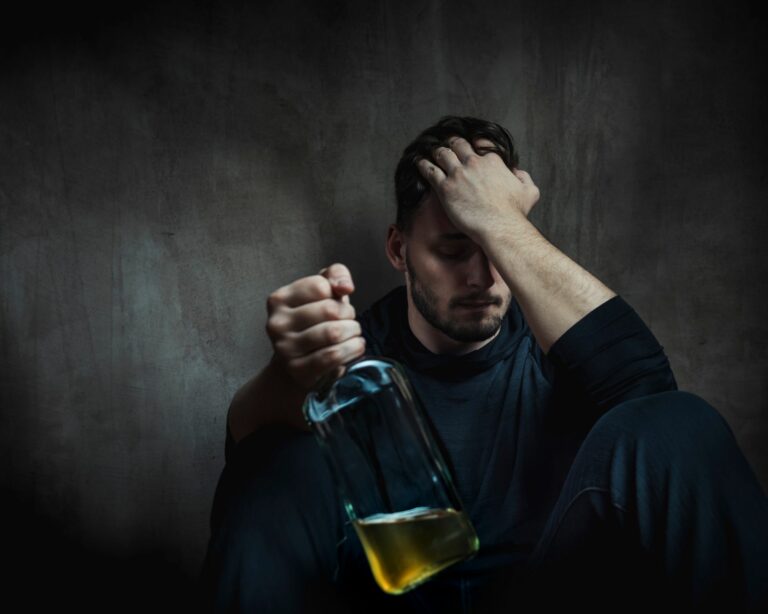The majority of people in the United States drink alcohol from time to time. Alcohol is available in many places and occasions, and most people drink occasionally.
But some people have difficulty managing the amount of alcohol they drink. Some people may regularly drink more than they should, and some engage in binge drinking–drinking a lot in a short period.
Frequent, heavy drinking can signify that you need help overcoming alcohol abuse. But what about signs of other types of problematic drinking, such as experiencing alcohol blackouts?
It’s important to know when drinking has become problematic and seek help immediately. Contact the Woburn Addiction Treatment specialists today to learn about starting one of our treatment programs.
What are Alcohol Blackouts?
Alcohol blackouts can occur if someone drinks enough alcohol to raise their blood alcohol level to a certain level–usually around 0.16%.[1] Many factors affect a person’s BAC, including:
- Age
- Gender
- Weight
- How much they’ve eaten
- The amount of alcohol consumed
- How fast they are drinking
- Genetics
- Other substances taken, including prescription medications
During a blackout, a person’s brain stops making new, long-term memories, meaning the person cannot remember what happened when the blackout ends.
Alcohol blackouts can be extremely dangerous because people often continue to be awake and active while having them. People may drive, get into fights, or engage in other risky behavior. During a blackout, people are highly vulnerable. During alcohol blackouts, people may:
- Spend money
- Insult or argue with people
- Have unprotected or unwanted sex
- Act in a physically aggressive way or assault others
- Damage property or other illegal activities
They are more likely to be the victim of a sexual or physical assault, may become injured, or may cause harm to others. They may cause severe, irreversible harm to themself or others or commit crimes without remembering it the next day.
Binge drinking–drinking too much alcohol in a short period– can lead to alcohol blackouts.
How to Avoid Alcohol Blackouts
Once you are blacking out while drinking, it is not possible for you to understand that it is happening. People in alcohol blackouts may continue to act and appear as if they are awake and aware, but they are no longer in control of their actions.
The best plan is to avoid alcohol blackouts altogether. Here are some things you can do to prevent yourself from blacking out while drinking.
Avoid drinking binges
Before beginning to drink, decide how many drinks you’ll have and stick to it. Plan ahead so you’re not tempted to drink more than you should.
Eat before you drink
Planning to have a few drinks? Eat something before you even have a sip of your first alcoholic beverage. Drinking on an empty stomach can cause your body to absorb alcohol quickly, leading to a higher BAC.[2]
Slow down
Resist the urge to drink quickly. Drink slowly instead, and put your drink down between sips. This can help you avoid hitting a blackout-level BAC.
Drink water
Sipping water between drinks can extend the amount of time it takes to become intoxicated. Alternate between water and alcoholic beverages to avoid blacking out while drinking.
While drinking, be aware of signs of intoxication and stop drinking if you notice them. Some signs to watch for include:
- Slurred speech
- Loss of coordination
- Blurry vision
These symptoms of intoxication could mean you’re headed toward an alcohol blackout, and you must stop drinking to avoid it.

Get The Care You Need and Deserve
Woburn Addiction Treatment is a leader in the addiction treatment field, with proven success in facilitating long-term recovery. Our team of top clinical & medical experts specializes in treating addiction coupled with mental illness, ensuring that each person receives individualized care. Call us – we’re available 24/day, 7 days/week.
Do I Need to Go to Rehab if I’m Blacking Out While Drinking?
Regularly drinking enough to cause alcohol blackouts may mean you need treatment for alcohol abuse. According to the Centers for Disease Control and Prevention (CDC), a binge is drinking four or more alcoholic drinks in a sitting for women and five.[3]
A drink is:
- 5 ounces of wine
- 12 ounces of beer
- 1.5 ounces of distilled spirits
Binge drinking isn’t always a sign of alcohol abuse or alcoholism, but a lack of control over your drinking defines these conditions. If you regularly drink more than you intended to, it may be a sign of a problem that requires treatment.
Some other signs of problematic drinking and alcoholism nclude:
- Needing to drink more to get the same effects
- Isolating from others
- Requiring alcohol to socialize or perfrm in other areas of your life
- Continuing to drink despite negative consequences
- Experiencing withdrawal symptoms if you stop drinking or drink less than usual
- Using alcohol to numb physical or emotional discomfort
Frequent alcohol blackouts can be a sign that your relationship with alcohol has become unhealthy. Going to treatment can help you regain control of your drinking and learn the skills you need to avoid alcohol abuse or addiction and live a healthier, sober lifestyle.
Find Help for Alcohol Abuse and Addiction Now
When it comes to the alcohol rehab and recovery experience at Woburn Addiction Treatment, we incorporate 12-step immersion, the careful development of a personalized treatment plan, and an effective combination of therapeutic and holistic treatment methodologies. If you or your loved one is ready to begin his or her personal journey of long-term healing, reach out to Woburn Addiction Treatment today for more information on our Boston-area alcohol rehab program.
References:


